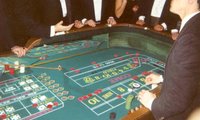 Mizuho Securities reported in their latest 4th quarter strategy summary that Japanese public entities (The BoJ, the DIC, and the BPSC) held roughly YEN 7 trillion (nearly USD$65 billion) of listed stock.
Mizuho Securities reported in their latest 4th quarter strategy summary that Japanese public entities (The BoJ, the DIC, and the BPSC) held roughly YEN 7 trillion (nearly USD$65 billion) of listed stock.Interestingly, the DIC (Deposit Insurance Corp) held on a cost basis YEN1,795 Billions primarily "acquired" from the less-than-illustrious though once-mightly NCB & LTCB, the former who was one of the largest writers of Put Options on the Nikkei 225 at the Pinnacle of the Bubble. Likewise, the BOJ bought YEN 1,974 billions of stock at cost from it's accumulated interventions and market pecadilloes. The DIC, as of Sept book closing was showing a market value of YEN 1,780 billions - for a loss of YEN 15 billions which is rather surprising given the breadth and depth of the bull market over the past four years. The BoJ, by contrast, shows a market value of their acquired holdings (basis the same Sept book closing) of YEN 3,565 billions - netting them a cool YEN 1,591 billions (USD$18 billion) of profit for the People of Japan, who with a >6% of GDP fiscal are in need of additional revenues, whatever their source.
All which leads one to ask the burning question: what is their secret? Who is their hot-hand? To be fair, the BoJ acquired most of their stock at the pitiful depths of bear despair in 2002 whereas the DIC acquired theirs in the mini, but narrow bull of FY 2000. Moreover, it is likely that both LTCB and NCB - both lacking long historical Keiretsu's - ending up with little less than poodle-shit in their portfolio, something the DIC must eat as lender (and apparently buyer) of last resort. Yet it is worth fathoming just HOW BAD their stock selection must have been to effectively make no mark-to-market money whatsoever during the past 4-year bull market which has been of a breadth and scale not seen since the 1980's - more than two and a half decades now-passed.




No comments:
Post a Comment